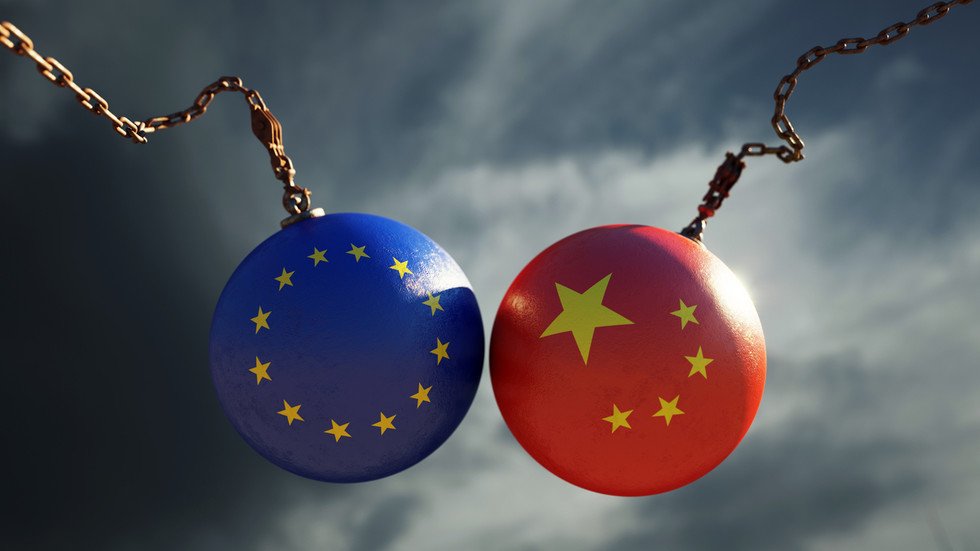Tariff hikes on the Asian country’s exports are creating friction, according to China’s commerce ministry
The European Union could trigger a “trade war” if it continues to escalate tensions, China’s commerce ministry has warned, accusing the bloc of unfair practices during its eight-month anti-subsidy probe into Chinese electric vehicles.
The warning comes after the EU’s announcement last week of hefty new tariffs of up to 38% on Chinese EV makers, to which Beijing responded by launching an anti-dumping investigation aimed at certain pork products from the bloc. Beijing previously warned that it would target the EU’s aviation and agriculture sectors in response to the tax.
“The European side continues to escalate trade frictions and could trigger a ‘trade war,’” the Chinese commerce ministry’s spokesperson stated on Friday, as quoted by local media. “The responsibility lies entirely with the European side,” the spokesperson stressed.
The statement denounced the EU’s anti-subsidy investigation, claiming that the bloc ignored the important consensus reached by the leaders of both sides. “It predetermined the results of the investigation, issued inappropriate tariff rates, harmed the interests of businesses from both sides, undermined overall China-EU economic and trade cooperation …” the spokesperson reportedly said, adding “the EU side’s approach is typical protectionism.”
In September 2023, European Commission President Ursula von der Leyen announced the so-called anti-subsidy investigation during her annual State of the EU address without notifying the Chinese side in advance.
According to Reuters, the Chinese commerce ministry’s statement was published about an hour before the arrival of German Economy Minister Robert Habeck in Beijing. Habeck’s three-day trip to China is the first by a senior EU country official since Brussels proposed the duties that could harm German businesses.
At a reception at the German embassy in Beijing, Habeck reportedly expressed dissatisfaction with Berlin’s current China strategy, describing it as too short-termist and not in sync with the China strategies of other EU countries. The strategy slammed by Habeck was outlined in a document released last July.
Meanwhile, Chinese automakers on Tuesday urged Beijing to raise tariffs on gasoline-powered cars with larger engines which are imported from Europe.
Official statistics show that EU car exports to China were worth €19.4 billion ($20.8 billion) in 2023, while the bloc bought €9.7 billion worth of electric vehicles from China.
German carmakers would be the most exposed to any counter moves from Beijing given that the Chinese market is a major one for the country’s auto exports, industry experts have been warning.
The EU’s move followed the US having quadrupled tariffs on Chinese EVs to over 100% earlier this month, affecting $18 billion in imported Chinese goods.
Beijing has warned that such measures violate the principles of fair competition and harm the stability of global trade.


